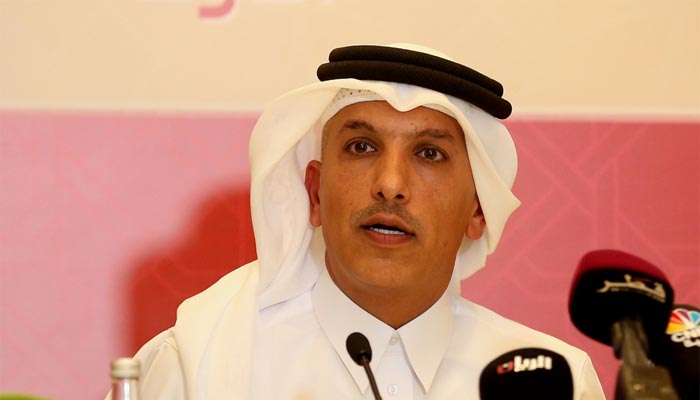By Santhosh V. Perumal
Business Reporter
Qatar’s 2016 general budget will be “realistic” but expected to show a “moderate” deficit, HE the Finance Minister Ali Sherif al-Emadi said in Doha on Sunday.
“Our new budget in 2016 will be realistic and it will reflect the change in oil prices,” al-Emadi told media after his meeting with the International Monetary Fund managing director Christine Lagarde and other Gulf Cooperation Council (GCC) finance ministers and central bank governors.
Early this week, HH the Emir Sheikh Tamim bin Hamad al-Thani had said Qatar will put together a state budget for 2016 that avoids a big deficit despite lower revenues from low oil and gas prices.
“It will take the fall in oil prices into consideration, so as to avoid a big budget deficit that may cause harm,” Sheikh Tamim had told the government's Advisory Council.
Al-Emadi said he expected “moderate” deficit but did not give details on the size of the potential deficit.
HH the Emir had also warned of “wasteful spending, overstaffing and a lack of accountability” in the country, and raised concerns about “dependency on the state to provide for everything”.
IMF had in April this year forecasted that Qatar could slip in fiscal deficit in 2016 and said the oil price slump highlighted the need for specifying a clear medium-term fiscal framework, including contingency plans.
The annual budgeting process should be aligned with this new medium-term framework so that spending overruns are eliminated, it had said, adding while there was no immediate concern about fiscal sustainability under its oil price assumptions, additional spending and revenue measures warranted over the medium term to secure inter-generational equity in the context of low oil prices.
In a reference to IMF managing director Christine Lagarde’s call to GCC countries to realign their fiscal policies in the wake of sustained lower prices in the foreseeable future, al-Emadi said on Sunday that Qatar had undertaken fiscal consolidation measures much earlier than its Gulf neighbours.
“Fiscal consolidation have started taking place and certainly Qatar is one good point in this case where adjustment has started and been initiated,” Lagarde highlighted.
Prudent policies in the past and higher oil prices had helped Qatar to run fiscal surpluses in the last 15 years, the finance minister said.
In June, the Ministry of Development Planning and Statistics (MDPS) had hinted that Qatar could show the first fiscal deficit in 15 years in 2016 itself against the previous forecast of 2017.
Finding that the impact of lower oil prices is seen most immediately in the nominal gross domestic product (GDP) estimates, the MDPS also said Qatar could still post fiscal surplus of 1.4% of GDP in 2015 but to show up deficit of 4.9% in 2016 and 3.7% in 2017.
The “considerable” fall in fiscal surplus in 2015, against 12.3% in 2014, reflects a relatively quick pass-through of lower oil prices on budget revenues. It also factors in increased spending restraint on current expenditures.

